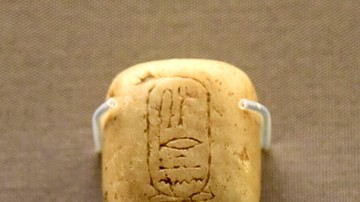Throughout the ancient civilization of Egypt, trade played a crucial role in shaping its economy and society. The exchange of goods and services not only facilitated economic growth but also fostered cultural interactions with neighboring regions. This article delves into the significance of trade in ancient Egypt, exploring its impact on the development of this remarkable civilization.
An Engine for Prosperity and Growth
Trade served as an engine for prosperity and growth in ancient Egypt, enabling the acquisition of valuable resources that were scarce or unavailable within their borders. The Nile River acted as a vital transportation route, connecting different regions within Egypt and facilitating domestic trade. Additionally, it provided access to international markets through maritime routes along the Mediterranean Sea.
Agricultural products such as grains, vegetables, fruits, and textiles formed the backbone of Egyptian exports. These commodities were highly sought after by neighboring civilizations due to their quality and abundance. In return, Egypt imported luxury items like precious metals (gold and silver), gemstones (lapis lazuli), exotic woods (ebony), spices (cinnamon), incense (frankincense), and other rare materials from distant lands.
Cultural Exchanges through Trade
Beyond economic benefits, trade also facilitated cultural exchanges between ancient Egyptians and foreign societies. As merchants traveled across vast distances to conduct business transactions, they brought with them new ideas, technologies, art forms, religious beliefs – all contributing to a rich tapestry of cultural diversity within Egyptian society.
This cross-cultural interaction influenced various aspects of daily life including architecture styles seen in temples inspired by foreign designs; fashion trends incorporating garments made from imported fabrics; culinary traditions enriched by spices introduced through trade; linguistic influences evident in loanwords assimilated into Egyptian vocabulary; artistic expressions reflecting diverse aesthetics encountered during commercial ventures.
Moreover, trade fostered diplomatic relations with neighboring kingdoms and empires. Through peaceful exchanges of goods, Egypt established alliances and maintained political stability in the region. This allowed for the sharing of knowledge and expertise in areas such as agriculture, architecture, medicine, and engineering – contributing to advancements within Egyptian society.
The Legacy of Ancient Egyptian Trade
Ancient Egyptian trade left a lasting legacy on the civilization’s economy, culture, and overall development. The wealth generated through commerce enabled pharaohs to finance monumental construction projects like pyramids and temples that still stand today as testaments to their grandeur.
Furthermore, the exchange of ideas sparked by trade contributed to intellectual growth within ancient Egypt. Scholars were exposed to foreign philosophies and scientific discoveries from distant lands – broadening their understanding of the world around them.
In Conclusion
The economic exchange in ancient Egypt was not merely a means for survival but rather an intricate web connecting civilizations across vast distances. It fueled prosperity while promoting cultural diversity through interactions with neighboring societies. The impact of trade can be seen in every aspect of ancient Egyptian life – from its architectural marvels to its intellectual achievements – leaving an indelible mark on this remarkable civilization.
